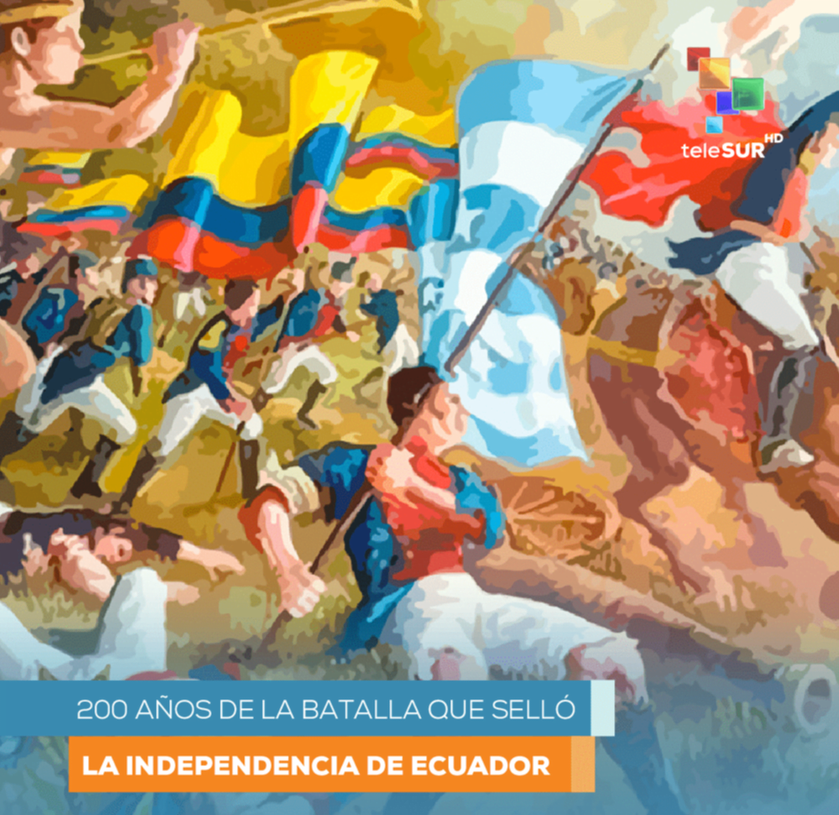
Symbolic representation of the 1822 Battle of Pichincha. | Photo: Twitter/ @Bomberos_Cuenca
Quito, May 24 (RHC)-- On May 24, 2022, Ecuadorians celebrate 200 years of the Battle of Pichincha -- a military feat that consolidated the independence of the Audiencia de Quito from the Spanish crown.
The battle took place on the slopes of Mount Pichincha, at 4,600 meters above sea level. Some 60,000 people witnessed it from Quito, a colonial city whose downtown was less than 5 miles below the combat site.
This military feat also allowed the Venezuelan liberator Simon Bolivar to consolidate an anti-colonial project in the Andean nations, since the Battle of Pichincha immediately became the symbol of the strength of the patriots, who forced the Royalist army to surrender.
The libertarian forces were commanded by Gen. Antonio Jose de Sucre, a Venezuelan who fought in various countries and later served as president of Peru and Bolivia.
Preparations for this memorable battle began in January 1822, when Sucre and 1,700 men marched from the Ecuadorian coast to the capital city. As he passed through the Andes, the Venezuelan general received the support of 1,500 men who came from Peru, Argentina, and Chile. This multinational force was ready to take on the Royalists.
Venezuelan President Nicolas Maduro's tweet reads: "I send an embrace to the brotherly people of Ecuador on the Bicentennial of the Battle of Pichincha -- a feat that invites us to reflect on what we can achieve with unity. The central objective is our peoples' freedom, sovereignty, and independence. Long live Sucre!"
By May 2, the patriots reached Latacunga City, from where they began another exhausting march towards Sangolqui, a city that was declared as free territory. On May 23, they began to climb up the Mount Pichincha seeking to surprise the Spanish who controlled Quito.
The royalist troops, however, detected the maneuver and went up the mountain to confront the rebels. Their attempt to change the course of history, however, failed.
On May 25, the Spanish general Melchor Aymerich capitulated. Sucre and the patriots then entered Quito and declared its independence. A month later, Bolivar arrived to consolidate "The Great Colombia" -- a political project based on unity against foreign empires.

